May 23, 2025 | 11:51 GMT +7
May 23, 2025 | 11:51 GMT +7
Hotline: 0913.378.918
May 23, 2025 | 11:51 GMT +7
Hotline: 0913.378.918
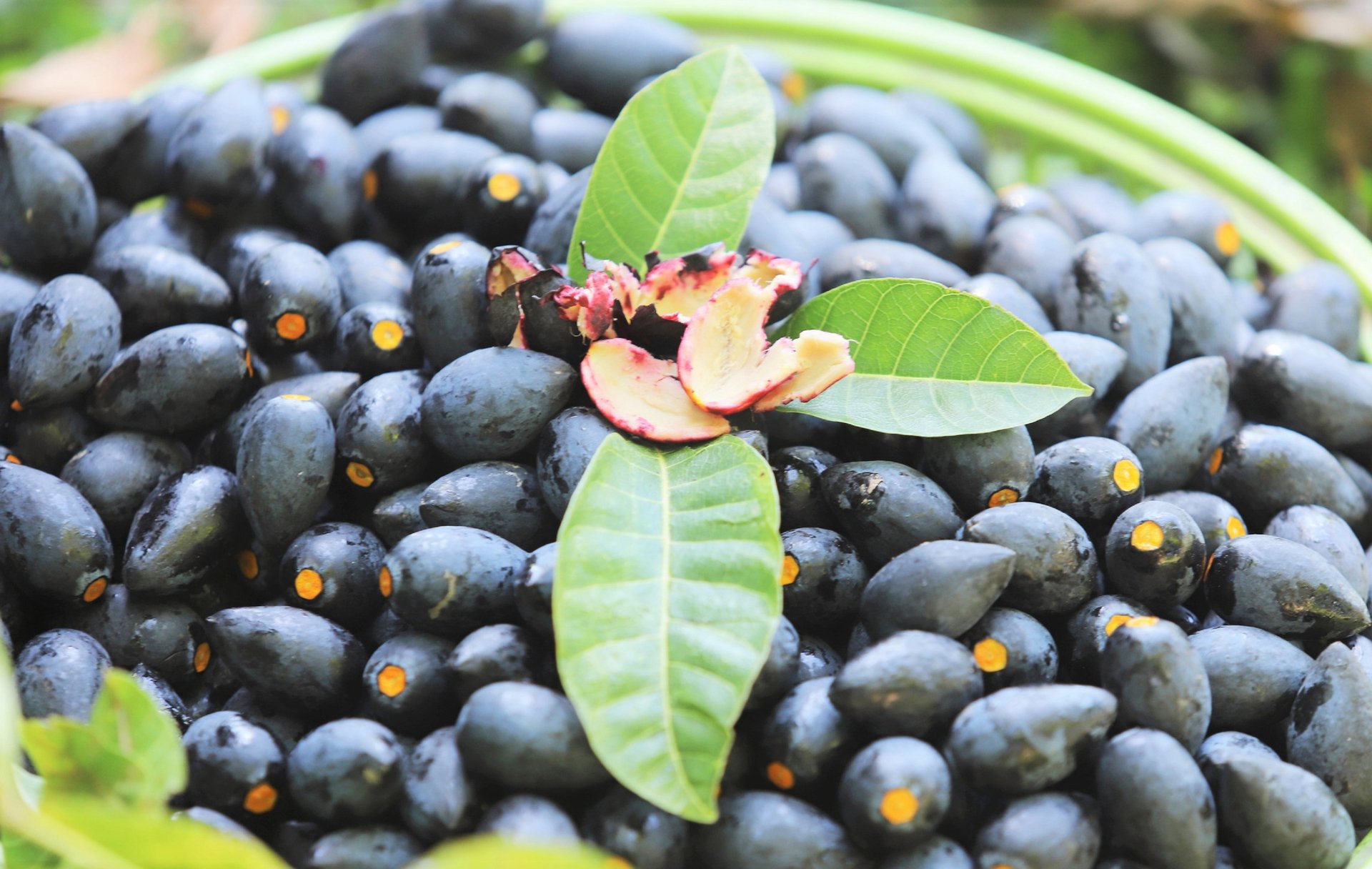
Black olives are currently a specialty food of the people in Ha Tinh province, and they are even brought by Vietnamese individuals overseas to savor the taste of their homeland.
The black olive is a woody plant, scientifically known as Canarium nigrum Engl, with heights ranging from 10 to 30 meters. For many decades, this plant has been considered the main cultivated crop of the residents in Son Ninh, Son Phu, Son Bang, Son Lam, Son Giang, and other communes of Huong Son district. Some households cultivate 3 to 4 trees, while others have dozens of trees.
According to local inhabitants, in the past, black olives were solely cultivated for their timber, and the fruit was used as a simple food source for daily meals. However, in recent years, these fruits have transformed into high-value local specialties of the Huong Son region. Some even liken black olives to being exclusively for the "wealthy class" due to their high market value, with prices for a kilogram of olives reaching up to 120,000 VND at times.
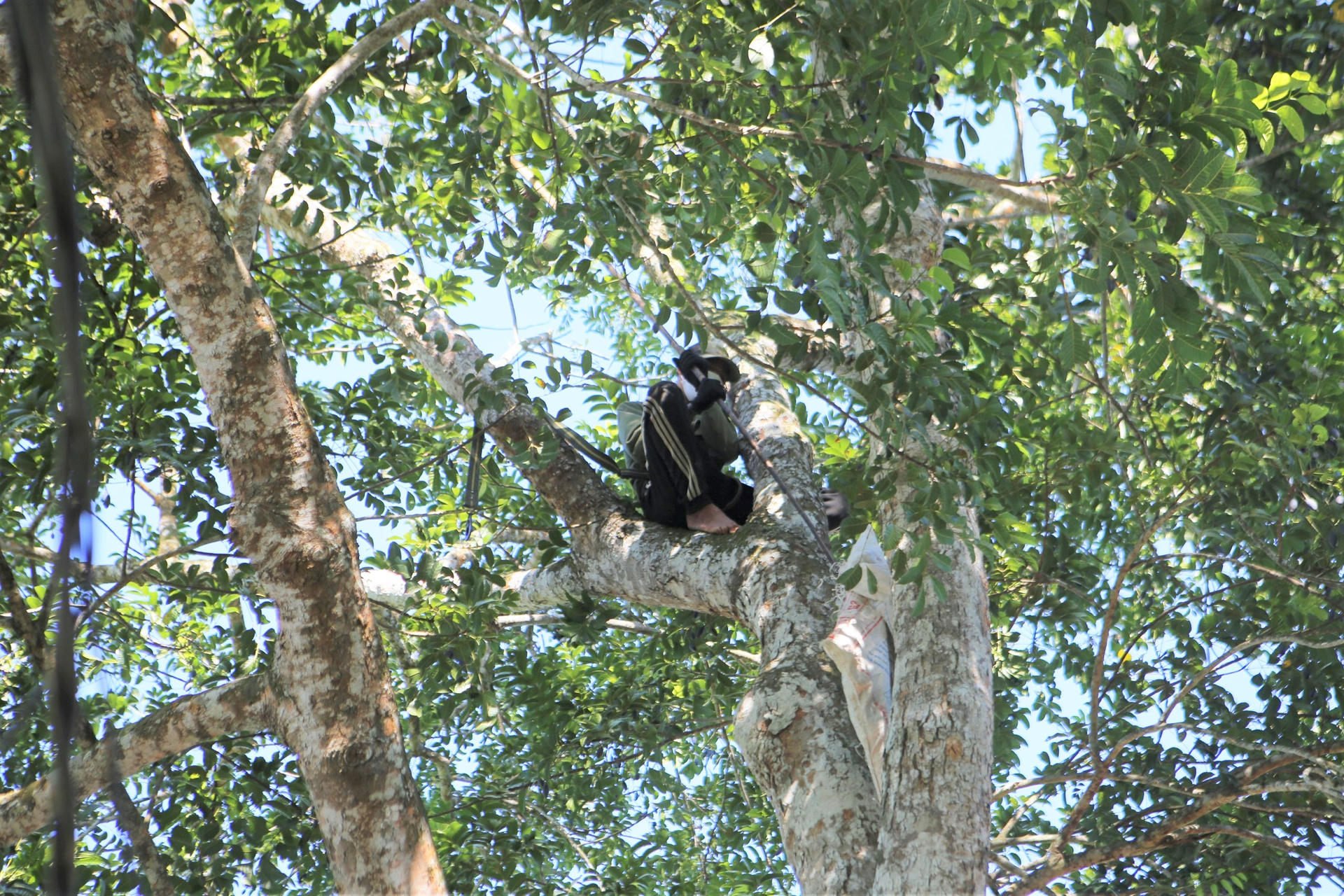
The income from an ancient black olive tree can reach up to 30 million VND per year for the owner.
Mrs. Tran Thi Hien, a resident of Nguyen Du Ward, Ha Tinh City, shares that her hometown is in Huong Son. Since childhood, she has been accustomed to eating dishes made from black olives, such as pork and black olive stew and salted black olives. Now, whenever the black olive harvest season comes (from the 7th to the 9th of lunar month), regardless of the high price tag, she always buys them to use as daily food.
"The olive fruit is oval-shaped, turning deep purple when ripe, with yellowish flesh and pointed ends on the seeds, and the seed kernel is a pale white color. A standard black olive will have a size of around 100 fruits per kilogram. The price for fresh black olives in the orchard currently ranges from 80,000 to 100,000 VND per kilogram. People usually buy olives to salt and then use them to make various traditional dishes, such as pork and olive stew, olive sticky rice, and stir-fried olives with bee pupae," Mrs. Hien explains.
Considering the economic benefits, Mr. Nguyen Xuan Huy, Chairman of the People's Committee of Son Ninh Commune, notes that many households own ancient black olive trees, aged between 20 to 30 years, bearing fruit. By the time of the harvest season, they can earn profits ranging from 25 to 30 million VND per tree.
"In recent years, the price of black olives has remained stable, yielding high economic returns, prompting people to rush into olive cultivation. We have developed an OCOP (One Commune One Product) black olive product called 'Hung Ly' and are encouraging local residents to expand their cultivation areas into concentrated zones," the leader states. He also emphasizes that Son Ninh is considered the "capital" of black olives in Huong Son district, with nearly 300 households growing black olives, totaling around 550 trees; the average annual yield is around 13 to 15 tons.
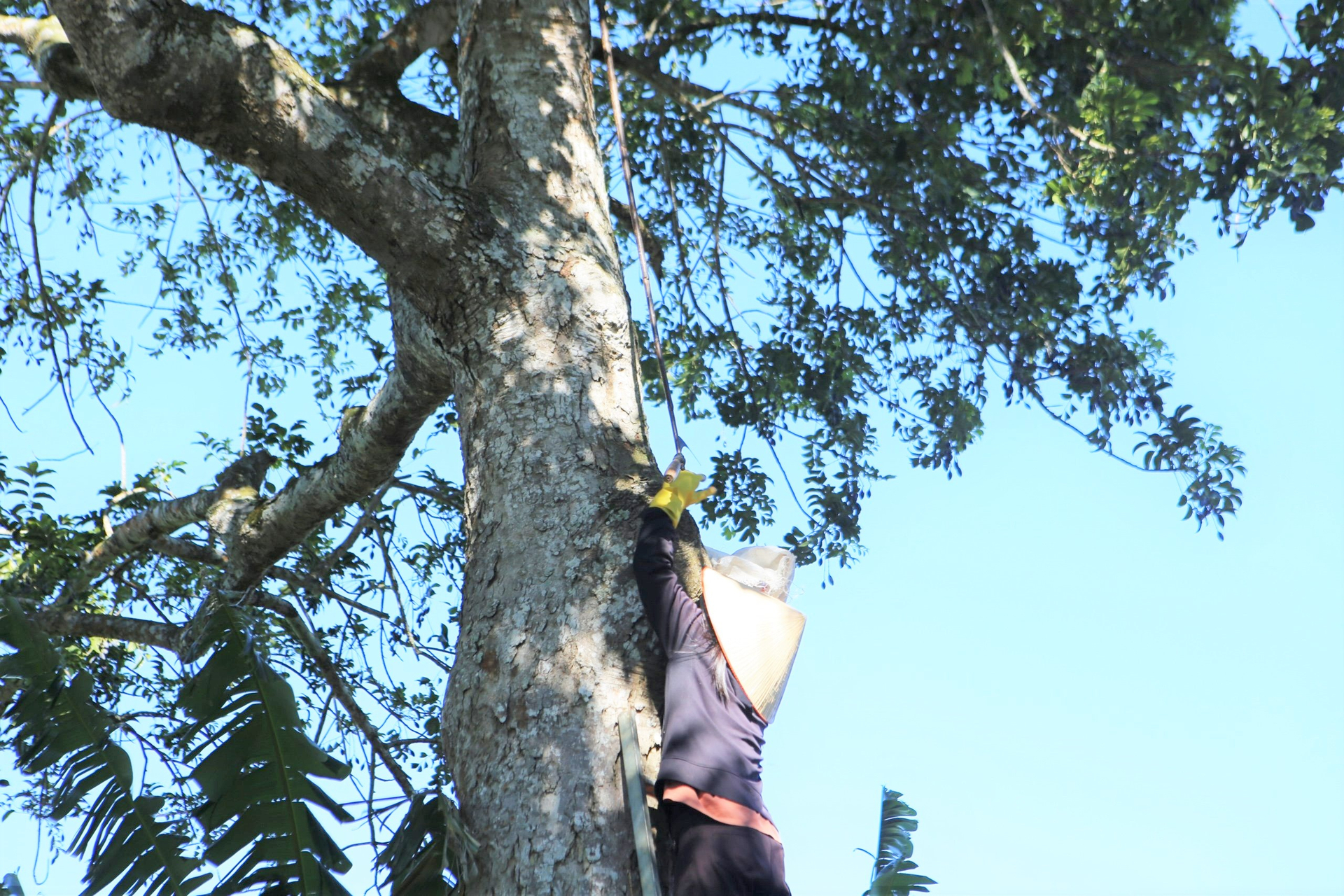
As the farmer, ancient black olive trees can bring about nearly 30 million VND every year.
At this time of the main harvest season, traders return to rural areas to negotiate with households to purchase the entire crop still on the trees, and then they hire labor for harvesting. To pick black olives, people have to climb onto the tree branches, often using safety harnesses. The harvesting tools are made from bamboo or long bamboo sticks about 10 meters in length, with a pickaxe attached at the top and a canvas cloth spread around the base to prevent the fruit from being damaged when they fall.
"The black olive harvesting profession is quite dangerous due to the tall trees and fragile branches, making it easy for them to break. Those with little experience won't be able to climb and harvest all the fruits on the trees. On average, I can harvest 2 to 3 trees a day. After deducting all the expenses, the income reaches around 300,000 VND," says Mr. An from Son Phu commune.
On the morning of August 18th, the Hanh family from Son Giang commune sold two black olive trees, which were several decades old. These two trees were bought by traders for 14 million VND. According to Mr. Hanh, while not becoming wealthy from black olives, these two trees planted in the garden have helped his family earn money to support their children's education over the years.
"In the countryside, gathering 10 or 20 million VND at once is very difficult, so whenever we need a significant amount of money, I always look at these two olive trees," Mr. Hanh shares.
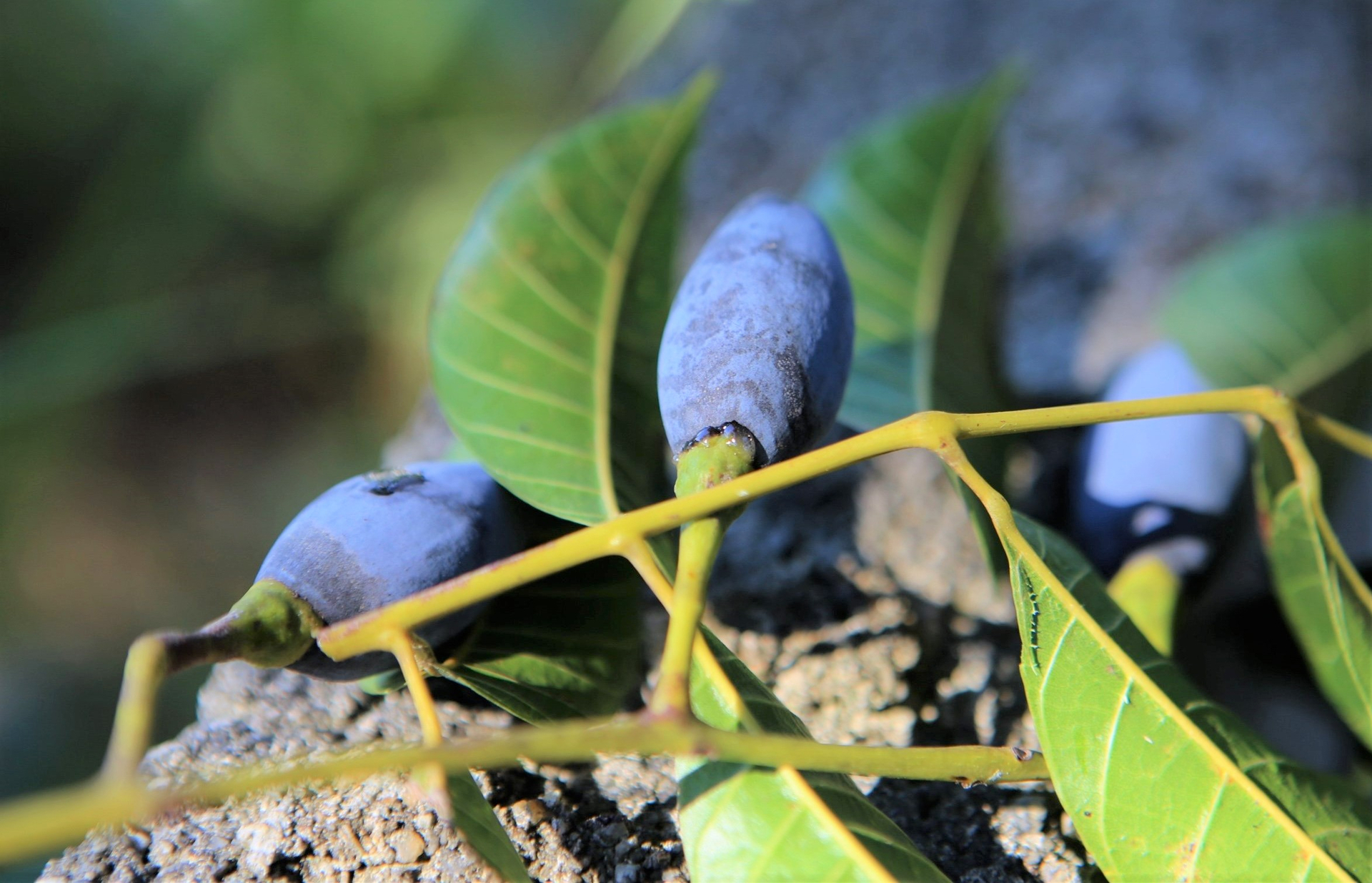
Currently, the people of Huong Son are expanding the cultivation area of this specialty tree.
Mr. Nguyen Van Hung's family, residing in Son Ninh commune, is one of the households with the highest number of black olive trees in Huong Son district, owning 12 trees. Among them, 8 trees have been harvested. On average, they yield 1 to 1.2 tons of black olives per year, which are sold at a price of 100,000 VND/kg, resulting in a total revenue of 100 to 120 million VND per year.
According to Mr. Hung, black olive cultivation requires minimal initial investment, as the trees grow and develop well, suiting the local soil and climate conditions in the mountainous Huong Son district. However, due to their long growth cycle, the time to harvest is delayed. Despite this, the high economic value they bring makes many households in the commune abandon mixed gardens and invest in black olive cultivation. Some even expand their planting to the hillside gardens that were previously used for growing resin trees.
Translated by Nguyen Hai Long

(VAN) Coffee prices on May 22, 2025, slightly decreased by VND 500, trading at VND 125,000 – 125,700/kg. Global coffee prices showed mixed fluctuations.
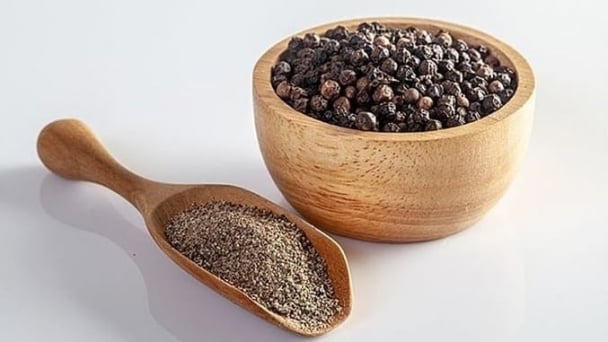
(VAN) Pepper prices on May 22, 2025, slightly decreased by VND 1,000, trading around VND 150,000 – 152,000/kg. Global pepper prices remained unchanged.
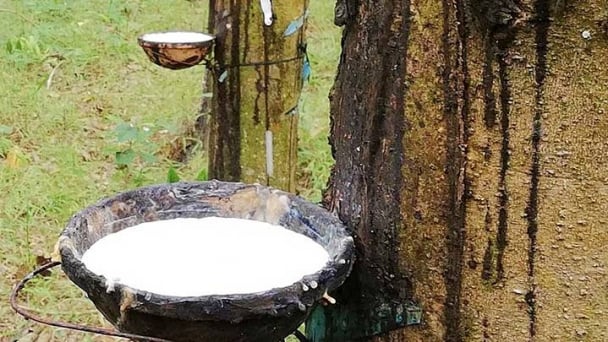
(VAN) Rubber prices on May 22, 2025 on the global market dropped significantly. Domestically, raw latex continues to be purchased at around VND 397 – 462/TSC.
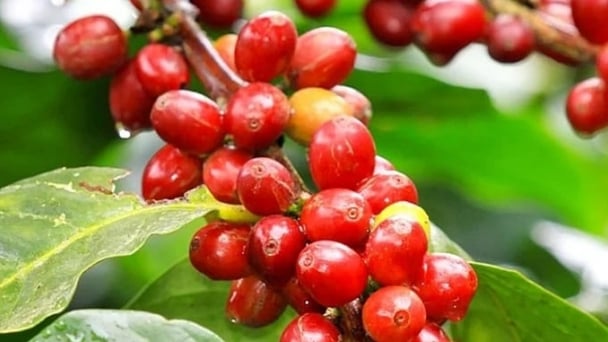
(VAN) Coffee prices on May 21, 2025, dropped sharply by VND 1,000, trading at VND 125,000 – 125,700/kg. Global coffee prices also reversed and declined.
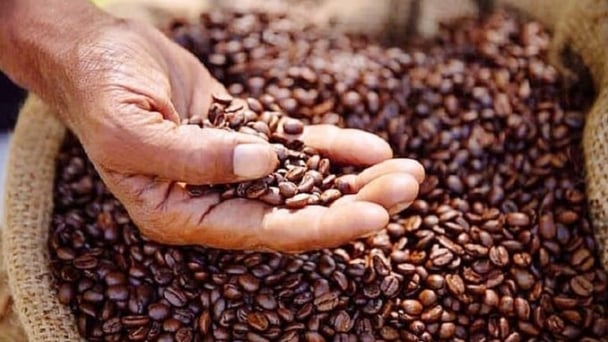
(VAN) Coffee prices on May 20, 2025, surged by VND 2,200, climbing to VND 126,000 – 126,700/kg. Meanwhile, global coffee prices also recorded a sharp increase.
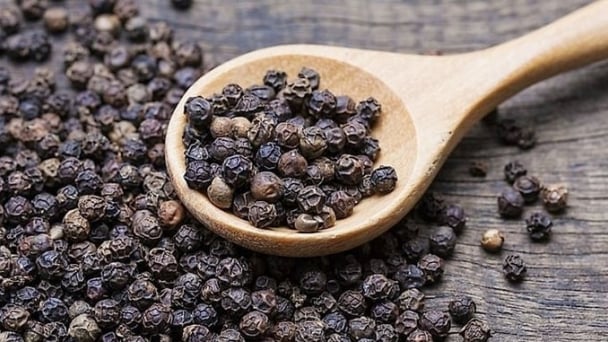
(VAN) Pepper prices on May 20, 2025, dropped by VND 1,000 only in Gia Lai, trading at VND 150,000 – 153,000/kg. Global pepper prices remained unchanged.
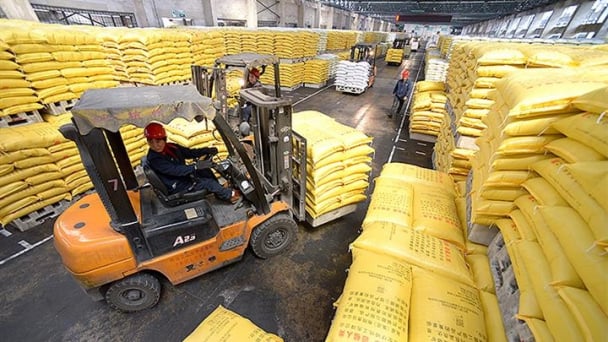
(VAN) Analysts are watching moves out of Asia, particularly with fertilizer.